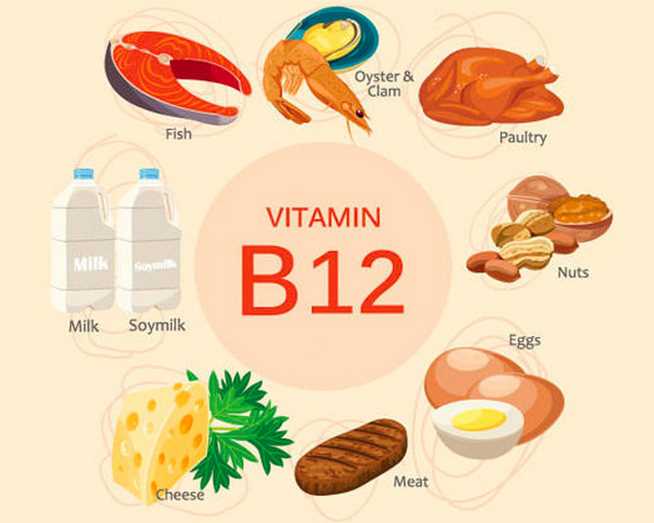Vitamin B12 is an indispensable nutrient that helps keep your body’s blood and nerve cells healthy and helps make DNA and the genetic material of your cells. Vitamin B12 also prevents Megaloblastic Anemia, a blood condition that makes people tired and weak.
It is a water-soluble vitamin significantly involved in the process of metabolism, also known as Cobalamin.
Chemical formula and molar mass:
Its chemical formula is C63H88CoN14O14P, and the molar mass of Vitamin B12 is 1355.38g/mol.
Vitamin B12 is an essential Vitamin; it plays several vital roles in your body, such as the formation of Red blood cells (RBCs) and DNA synthesis.
Our body doesn’t make Vitamin B12 naturally, you have to get it from foods that are rich in Vitamin b12, like animal-based foods or from intake of supplements.Your liver can store it for upto 5 years.
According to Fortune Business Insights™, the Vitamin B12 Market is one of the key vitamin essential for amino acid metabolism, fatty acid metabolism and DNA synthesis. It is a crucial component for efficient cellular metabolism of the human body. Vitamin B12 is one of the largest and most structurally complex vitamin found. Natural sources of vitamins include fish, meat, egg and poultry.
How much Vitamin B12 per day?
The answer depends on some factors, which include your age, medical condition, your eating habits and if you take any medication, etc. These things are considered while calculating the intake amount of Vitamin B12.
Here are the average calculated amounts of Vitamin B12, measured in micrograms, vary by age:
- Infants up to age 6 months: 0.4 mcg
- Babies age 7-12 months: 0.5 mcg
- Children age 1-3 years: 0.9 mcg
- Kids age 4-8 years: 1.2 mcg
- Children aged 9-13 years: 1.8 mcg
- Teens age 14-18 years: 2.4 mcg (2.6 mcg per day if pregnant and 2.8 mcg per day if breastfeeding)
- Adults: 2.4 mcg (2.6 mcg per day if pregnant and 2.8 mcg per day if breastfeeding).
Food Sources of Vitamin B12
Our body doesn’t make this Vitamin; we can have it from animal foods, like meat, egg, fish, etc., or from food that is fortified with it. Other than these items, supplements can also be a source of Vitamin b12.
Vitamin B12 deficiency
Vitamin B12 is an important nutrient, and its deficiency can ultimately lead to various severe problems and conditions. One can also get Vitamin B12 deficient if he or she follows a vegan diet as animal-based foods are an excellent source of Vitamin B12. Animal-based diets can easily provide you with 1000 mcg of vitamin B12 a day.
Symptoms of Vitamin B12 deficiency:
If you have Vitamin B12 deficiency, you could easily become anemic; if deficiency is not treated properly, it may lead to the following symptoms:
- Dull pale skin
- Fatigue and tiredness
- Shortness of breath
- Loss of appetite
- Severe diarrhea
- Constipation
- Loss of vision
- Memory loss and depression
Key Points
- Our body needs Vitamin B12 to absorb iron, calcium, and Vitamin A.
- It assists in the synthesis of Red blood cells.
- It helps in maintaining your mental health and prevents stress and dementia.
- The Source of Vitamin B12 is animal-based foods.
- The dearth of Vitamin B12 can lead to various serious diseases like dementia, Anemia, nervousness, etc.
Conclusion
Vitamin B12 contributes to your body a lot, and its deficiency is responsible for various serious conditions and disorders. One can get Vitamin B12 from animal-based foods and take vitamin b12 supplements to meet their body needs, particularly peragnant, breastfeeding women, vegetarians, and older people.




